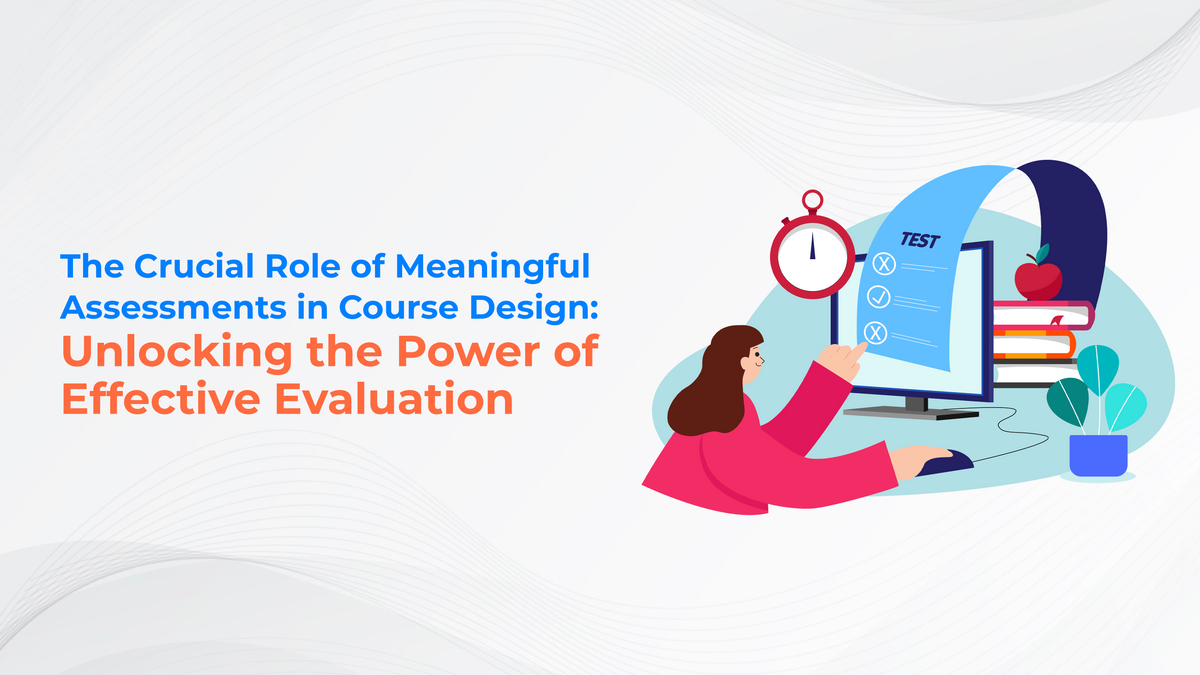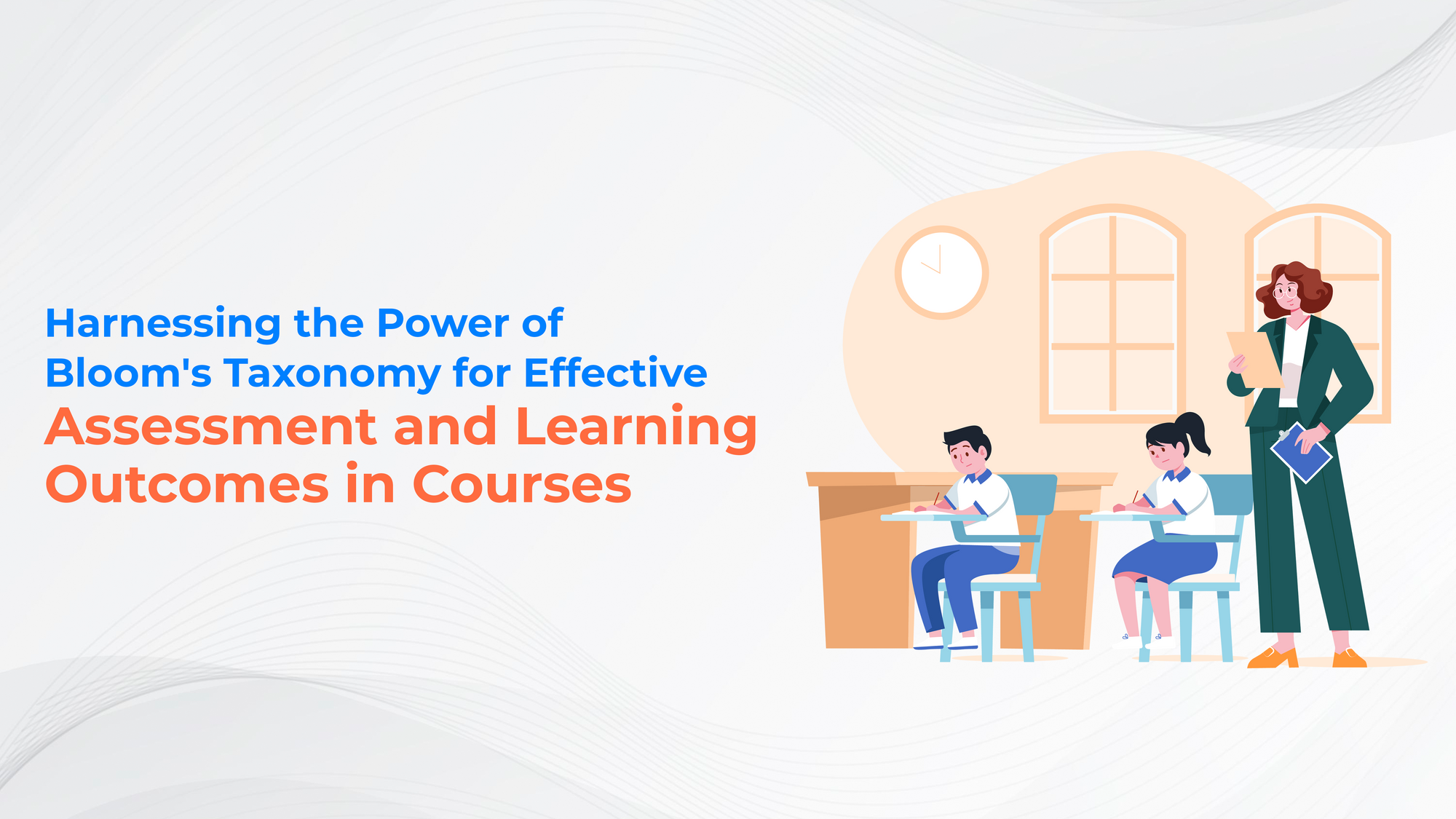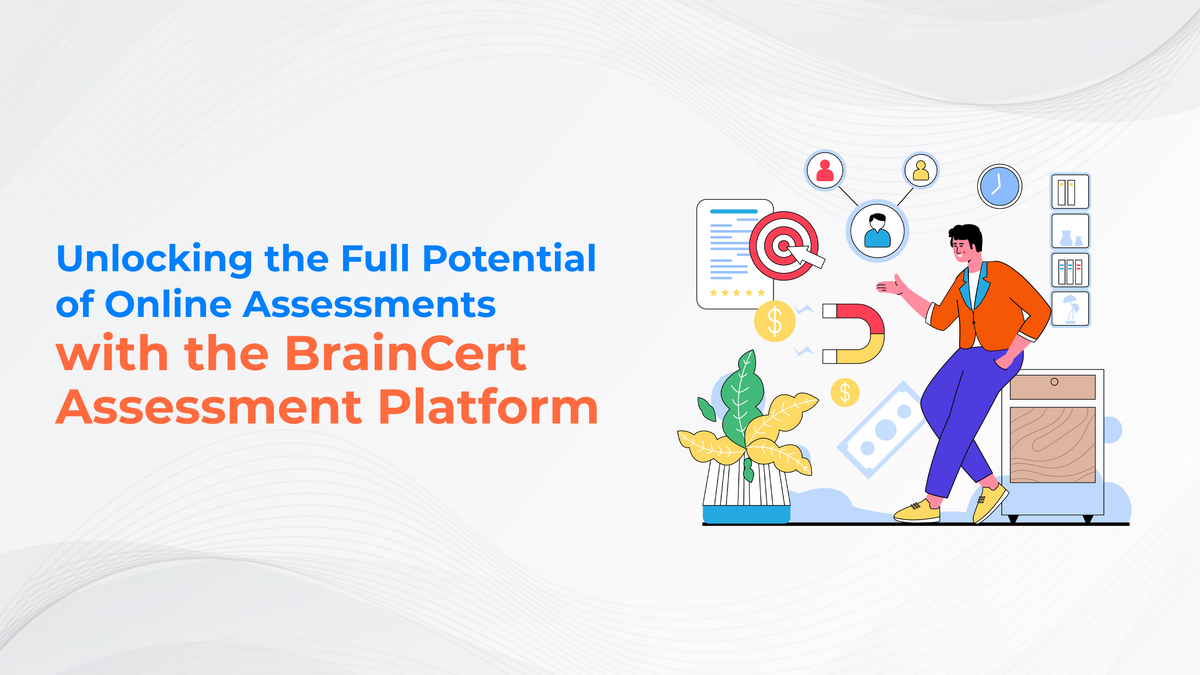Assessments are an integral part of the learning process, providing both educators and students with valuable feedback and insights into the effectiveness of the educational content. However, not all assessments are created equal. To maximize their impact, assessments must be meaningful, fair, and aligned with course objectives. In this research blog, we will delve into the importance of meaningful assessments in courses and provide practical guidelines to help you create assessments that genuinely contribute to the learning experience.
The Importance of Meaningful Assessments
Enhanced Learner Engagement
Meaningful assessments encourage active engagement from students, as they see the direct relevance of the evaluation to their learning goals. When assessments are thoughtfully designed and aligned with course objectives, learners are more likely to invest time and effort in understanding the subject matter, ultimately leading to better learning outcomes.
Accurate Measurement of Learning Progress
A well-crafted assessment can accurately measure students' progress and understanding of the course content. By focusing on meaningful assessments, educators can gauge the effectiveness of their teaching strategies and identify areas where students may need additional support or resources. This information can be used to adjust course content, tailor feedback, and ensure that the learning experience remains relevant and effective.
Development of Critical Thinking and Problem-Solving Skills
Meaningful assessments often require learners to apply their knowledge and skills in novel or complex situations, promoting the development of critical thinking and problem-solving abilities. By challenging students to think beyond rote memorization, educators can foster higher-order cognitive skills that will serve learners well throughout their educational and professional careers.
Motivation and Sense of Accomplishment
When students perceive assessments as meaningful and relevant, they are more likely to be motivated to succeed. A well-designed assessment provides learners with a sense of accomplishment and reinforces the value of their efforts, boosting their self-confidence and overall motivation to continue learning.
Guidelines for Creating Meaningful Assessments
- Align Assessments with Course Objectives
Ensure that your assessments directly align with your course objectives, focusing on the most critical knowledge and skills that learners should acquire. This alignment helps maintain the relevance of your assessments and ensures that they accurately measure student progress.
2. Use a Variety of Assessment Methods
Incorporate a diverse range of assessment methods, such as multiple-choice questions, essays, projects, and presentations, to cater to different learning styles and provide a comprehensive evaluation of learner performance.
3. Encourage Higher-Order Thinking
Design assessments that challenge students to apply their knowledge and skills to real-world scenarios, solve complex problems, or think critically about the subject matter. This approach promotes deeper learning and helps develop critical thinking skills.
4. Provide Clear Instructions and Expectations
Clearly communicate the assessment's purpose, instructions, and expectations to your students. This transparency ensures that learners understand the objectives of the assessment and can approach it with confidence.
5. Offer Timely and Constructive Feedback
Provide students with timely, specific, and constructive feedback on their performance, highlighting their strengths and areas for improvement. This feedback can be instrumental in promoting growth and helping learners understand how they can improve.
Conclusion
Meaningful assessments play a crucial role in the success of any course, contributing to enhanced learner engagement, accurate measurement of progress, development of critical thinking skills, and increased motivation. By following the guidelines outlined in this blog, you can create meaningful assessments that genuinely contribute to your students' learning experience and drive their academic success.










